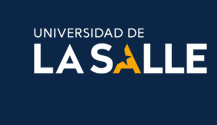Title
Critical intercultural communicative competence: towards a state of the art
Resumen
Dos enfoques determinan el estudio actual sobre el tema de las competencias: la visión educativa, que orienta la concepción y el diseño de los currículos, y la mirada de la evaluación y la reflexión, que analiza desde los medios de planeación y desarrollo, la forma como la educación se vincula con el entorno sociopolítico globalizado. En este contexto se desarrolló la investigación que da origen a este artículo, en la cual el punto de partida fue la competencia comunicativa intercultural. La revisión de bibliografía sobre los avances en el campo de las competencias, sus relaciones con las distintas disciplinas y las producciones intelectuales desde los lugares de enunciación sobre el tema que nos ocupa, constituye el propósito de la investigación. Se revisaron 130 libros y 74 artículos, empleando las siguientes categorías de búsqueda: interculturalidad, critica, lingüística, comunicación, ideología y competencia. Además, se seleccionaron textos en ingles, francés y español. Las publicaciones corresponden a los siguientes países: Colombia, Francia, Inglaterra, España, Suiza, Argentina, Chile, México, Bélgica y Estados Unidos. Los resultados demuestran que el estudio de este tema comienza en la mitad de la década del siglo XX con el aporte de la psicología. Años más tarde hay un período de expansión, comprendido entre 1996 y 2000. En este segundo momento, se amplia el desarrollo del conocimiento con el aporte de diferentes disciplinas, como la sociología, la economía, la política y la educación. Se evidencian entonces diferentes problemáticas, se relacionan campos distintos y se perciben nuevos interrogantes. La tendencia en los inicios del siglo XXI es estudiar las competencias, incorporando en el debate la integración de concepciones como interculturalidad y la conciencia crítica.
Palabras clave
competencia, comunicación, interculturalidad, crítica, lingüística aplicada
Abstract
The topic of competences has become quite relevant within the field of education in the past few years. On the one hand, the notion of competence has oriented conceptualizations about curriculum design and on the other hand, it is from this perspective that education, its evaluation and reflection, is conducted nowadays within the socio-political context of globalization. This article deals with the notion of competences that are currently necessary in the new contexts. The article discusses a communicative, intercultural and critical competence. The point of departure was the review of literature that included the evolution of the term and its different uses and relationships with various disciplines. For the literature review, 130 books, and 74 articles in English, Spanish and French were reviewed and classified within the following categories: intercultural, critical, linguistics, communicative, ideology, and competence. The texts were published in Colombia, France, England, Spain, Switzerland, Argentina, Chile, Mexico, Belgium, and the United States. The findings show that especial interest in the study of the topic started about in the 60´s the decade of the past century with a strong influence of psychology. Later on, between 1966 and 2000, there was a renewed interest on the topic. During this time, the concept of competence is developed thanks to contributions coming from sociology, economics, politics and education. As a result of this, new related problems and questions concerning the concept, started to arise. Finally, it is necessary to remark that the new tendency, identified at the beginning of the XXI century is to study competences by incorporating the debate concerning the integration of concepts such as intercultural and critical awareness.
Keywords
competence, communicative, intercultural, critical awareness, ideology, applied linguistics
Fecha de recepción
30 de julio de 2009
Fecha de aceptación
24 de agosto de 2009
Fecha de publicación
2009-10-01
Licencia Creative Commons

This work is licensed under a Creative Commons Attribution-Noncommercial-No Derivative Works 4.0 License.
Tipo de documento
Artículo de investigación
Editorial
Universidad de La Salle. Ediciones Unisalle
Citación recomendada
del Hierro Santacruz, Gloria
(2009)
"Competencia comunicativa intercultural crítica,"
Tendencias y Retos:
No.
14
, Article 11.
Disponible en:


